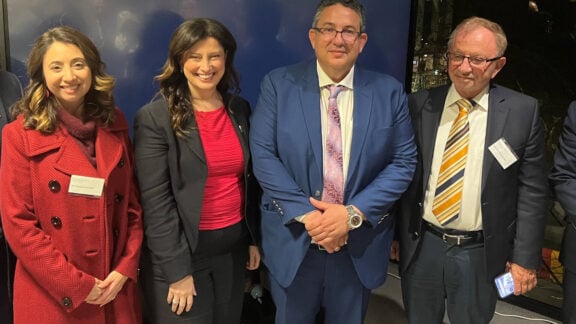At their annual conference at Sydney University, hundreds of community language teachers in New South Wales were warned about the significant role Artificial Intelligence (AI) will play in shaping language education.
Speakers discussed concerns that AI advocates aim to strip cultural elements from language teaching, reducing it to mere communication.
Keynote speaker Joseph Lo Bianco, Emeritus Professor of Language and Literacy Education at the Melbourne Graduate School of Education, praised AI’s potential in the classroom but cautioned about its negative implications.
Lo Bianco highlighted AI’s ability to offer personalised learning experiences based on students’ progress, interests, and capabilities.

“The concerns that people have about the influence of artificial intelligence are on teaching in general and in particular on teaching of language as well as on language itself and how it is used. This internationalisation of communication is happening for no better reason than wanting to save money.
“There are specific cultures which are particular to languages. So, you can see the beginnings of what is going on here – the separation of culture from language and parcelling off of language teaching to English, which will be done through English translated books.
“There would be fewer teachers engaged if this vision were to be realised,” he added.
Professor Lo Bianco expressed concerns about AI’s impact on language teaching, including the risk of separating language from culture and relying on English-translated materials. He warned of potential job losses among teachers if this trend continues.
“Some academics think that artificial intelligence will kill off the remaining university language teaching departments. Some say this is the end of community language education and some education administrators support this.”

“Thanks to AI people may not feel the need to learn a second language and Australian students seem to be losing interest in learning another language. There is a serious decline in language numbers.”
“This is the biggest single challenge we face. It’s not the technology which is itself rich with support for language learning.”
The emeritus professor stressed that while AI can enhance language learning, the danger is how it will be interpreted by people who think language is only about passing over very basic messages oversimplifying it.
Lucia Johns, President of the NSW Federation of Community Language Schools, echoed Professor Lo Bianco’s concerns given that the federation supports over 3,000 voluntary teachers across 583 locations in NSW, educating 35,000 children in over 60 different languages.
“Professor Lo Bianco has issued a very serious warning which we should all absorb, respond to and act on right now,” she said.










